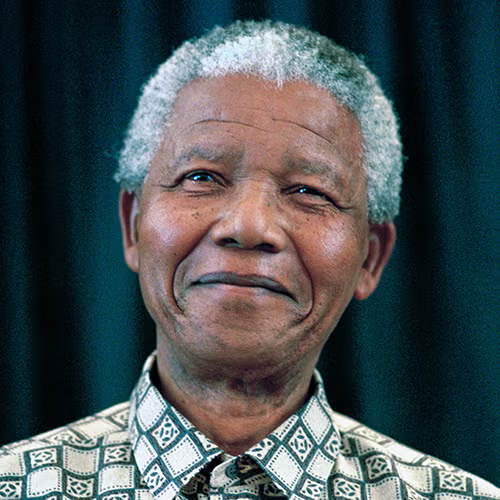Exploring the intersection of faith and science has been a topic of interest for scholars from both realms.
While faith anchors individuals in spiritual beliefs and moral values, science seeks to understand the universe through empirical evidence and rational inquiry.
The dialogue between these two domains often raises more questions than answers, challenging us to explore their unique yet overlapping narratives.
We shall delve into the definitions, historical relationships, notable figures, contemporary perspectives, and the potential for collaborations between faith and science.
Faith and Science: Definitions and Core Concepts
Faith typically refers to a deep-seated belief in a higher power, spiritual truths, or moral principles that guide human behaviour. It often encompasses hope, trust, and a sense of purpose.
On the other hand, science is rooted in the systemic study of the natural world, characterized by observations, and experiments.
Both faith and science have their methodologies and epistemologies, yet they address fundamental questions about existence, purpose, and the universe.
Historical Relationship between Faith and Science
The relationship between faith and science has been complex and dynamic, spanning thousands of years. Here is a brief overview:
Ancient Civilization (3000 BCE – 500 CE):
. Faith and science were intertwined with spiritual beliefs influencing scientific inquiry.
. Early Greek philosophers like Aristotle and Plato explored natural philosophy, laying the groundwork for scientific inquiry.
Middle Ages (500 – 1500 CE):
. Christianity dominated Western thought, and faith influenced scientific understanding.
. Scholars like Thomas Aquinas integrated Aristotelian Philosophy with Christian theology.
Scientific Revolution (1500 – 1700 CE):
. Tension arose between faith and science, but many scientists saw their work as complementing religious beliefs.
. Figures like Kepler, and Newton challenged traditional understanding with empirical evidence.
Enlightenment and Modern Era (1700 – 2000 CE):
. Science became increasingly secular, with an emphasis on reason and empiricism.
. Faith and science were often seen as separate domains, with some scientists viewing faith as incompatible with scientific enquiry.
Contemporary Era (2000 CE – present):
. Increased dialogue and collaboration between faith and science communities
. Recognition of the complexity and nuance in the relationship between faith and science.
Key Figures in the Dialogue of Faith and Science
Numerous individuals have played significant roles in bridging faith and science. Figures like Sir Isaac Newton viewed the laws of physics as reflections of God’s orderly creation.
Albert Einstein, a physicist who saw science and faith as complementary, while not religious in a traditional sense, expressed a sense of wonder about the universe that resonated with spiritual undertones.
Contemporary thinkers, such as Francis Collins, former head of the Human Genome Project, advocate that faith and science can coexist harmoniously, enriching both realms of understanding.
Teilhard de Chardin, Jesuit priest and palaeontologist explored the intersection of faith and science.
Pope Francis, is a catholic leader who has emphasized the importance of science and faith dialogue.
https://www.nationalacademies.org/evolution/science-and-religion
Modern Perspectives on Faith and Scientific Inquiry
In contemporary discussions, many scholars and practitioners have begun to explore how faith can inform scientific inquiry.
The viewpoint of non-overlapping magisterial (NOMA) proposes that science and religion each present different realms of human understanding.
Dialogue initiatives, including interfaith dialogues on scientific ethics, seek to unite various faith communities around shared goals in addressing issues such as climate change and bioethics.
Through these efforts, a deeper appreciation for the contributions of both faith and science can emerge.
Case Studies: Faith-Based Initiatives in Science
There are numerous case studies illustrating effective faith-based initiatives in the scientific field.
For instance, many religious organizations have invested in environmental stewardship projects, emphasizing care for creation as a spiritual mandate.
Additionally, faith-based healthcare institutions often integrate holistic approaches to medicine that combine physical health with spiritual well-being.
These initiatives demonstrate the capacity for faith to inspire meaningful contributions to scientific endeavours.
Challenges and Controversies at the intersection
Despite the potential for collaboration, challenges persist at the intersection of faith and science.
Conflicts often arise over topics such as evolution, climate change, and medical ethics, where differing belief systems can clash. Additionally, the rise of scientific scepticism within certain religious communities can hinder constructive dialogue.
Navigating these controversies requires openness and a willingness to engage with different perspectives fostering mutual respect and understanding.
Potential for Collaboration between Faith and Science
The future holds promise for collaboration between faith and science, particularly as pressing global challenges demand comprehensive approaches.
Issues like poverty, health disparities, and environmental degradation can benefit from combined insights and resources.
Faith communities can amplify these moral imperatives for scientific work, while scientists can inform faith-based initiatives with critical data and pragmatic solutions.
By embracing this partnership, both realms can contribute significantly to the well-being of humanity and the planet. The exploration of faith and science reveals a rich tapestry of dialogue, conflict, and potential collaboration.
In recent years, initiatives have emerged to promote dialogue and collaboration between faith and science communities.
Examples include:
- The Clergy Letter Project: A project encouraging clergy to support teaching evolution in schools.
- The Vatican’s Pontifical Academy of Sciences (founded in 1603): A platform for scientists and theologians to discuss topics like evolution and cosmology.
- The Bio Logos Foundation (founded in 2007): An organization exploring the intersection of faith and science, particularly in the life of sciences.
By understanding the nuances of their relationship, we can foster an environment where both perspectives enrich our understanding of the world.
The journey towards integrating faith and science invites us to seek not only knowledge but also wisdom, guiding our actions towards a more compassionate and renewable future.





















































































